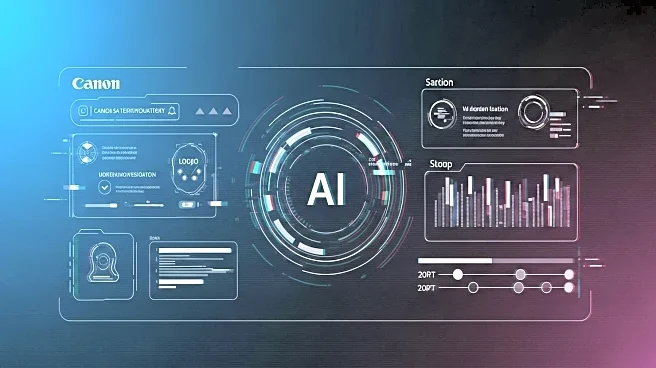What's Happening?
Researchers from George Mason University have identified a new threat to artificial intelligence systems, termed 'OneFlip.' This vulnerability allows attackers to manipulate AI by altering a single bit in the AI's neural network weights, potentially leading to dangerous outcomes. The research, presented at the USENIX Security Symposium, highlights how this manipulation could cause autonomous vehicles to misinterpret road signs or facial recognition systems to misidentify individuals. The attack requires white-box access to the AI model and the ability to run attacker code on the same machine as the AI system. While the practical risk is currently low, the potential for misuse by nation-state actors remains significant.
Why It's Important?
The discovery of 'OneFlip' underscores the vulnerabilities inherent in AI systems, which are increasingly integrated into critical infrastructure and everyday technology. The potential for AI manipulation poses risks not only to individual safety but also to broader societal trust in AI technologies. As AI becomes more prevalent in sectors like transportation, healthcare, and security, ensuring the integrity of these systems is crucial. The research calls for AI developers and users to be proactive in implementing safeguards against such vulnerabilities, highlighting the need for robust security measures in AI deployment.
What's Next?
AI developers and companies are urged to consider potential mitigations against 'OneFlip' and similar vulnerabilities. This includes enhancing security protocols and conducting thorough risk assessments of AI models. As the research community continues to explore AI vulnerabilities, further studies may focus on developing defenses against such attacks. Additionally, there may be increased collaboration between AI developers and cybersecurity experts to address these emerging threats.
Beyond the Headlines
The ethical implications of AI vulnerabilities like 'OneFlip' are significant, as they raise questions about accountability and transparency in AI systems. The potential for undetected manipulation of AI models could lead to unintended consequences, emphasizing the need for ethical guidelines in AI development. Furthermore, the research highlights the importance of maintaining public trust in AI technologies, which could be undermined by such vulnerabilities.









